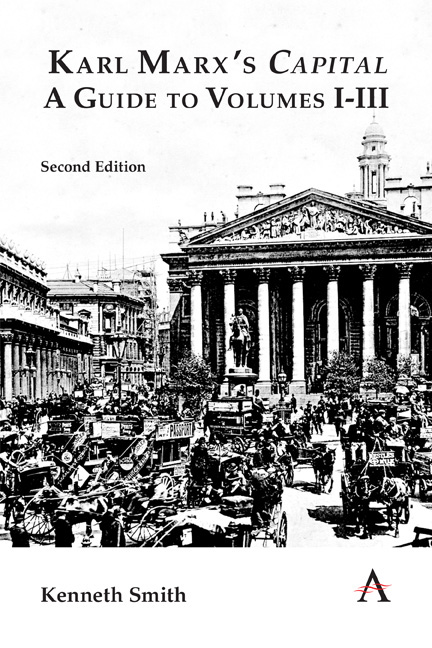Book contents
- Frontmatter
- Dedication
- Contents
- Preface to the Second Edition
- Introduction
- Part I The Development of the Capitalist Mode of Production
- Part II The Capitalist Mode of Production
- Part III The Underdevelopment of the Capitalist Mode of Production
- Part IV The Value Theory of Labour
- Conclusion to Part IV
- Conclusion
- Appendix: On Social Classes
- Notes
- Bibliography
- Index
- Frontmatter
- Dedication
- Contents
- Preface to the Second Edition
- Introduction
- Part I The Development of the Capitalist Mode of Production
- Part II The Capitalist Mode of Production
- Part III The Underdevelopment of the Capitalist Mode of Production
- Part IV The Value Theory of Labour
- Conclusion to Part IV
- Conclusion
- Appendix: On Social Classes
- Notes
- Bibliography
- Index
Summary
Having looked in some detail at what Marx has to say on the subject of the development of the capitalist mode of production in Capital, Vols I and II, and on the underdevelopment of the CMP in Vols II and III, we are now going back to look at what Marx had to ay about the theory of value at the beginning of Capital, Vol. I (1974a, 43–222 [1976, 125–339]). In what follows, therefore, I will by-pass Marx's two-hundred page long highly detailed discussion in Part VI of Capital, Vol. III (1977, 614–814 [1981, 751–950]) of the question of the transformation of surplus-profit into ground-rent (a short book in its own right and a topic which is of very little interest to us here), as well as his very interesting discussion in the final section of Part VII (1977, 814–86 [1981, 954–1,024]) of what has come to be known as the ‘trinity formula’ – the three main sources of income (rents, profits and wages). I will however look at Marx's famously incomplete discussion (Ch. 52, 1977, 885–6 [1981, 1,025–6]) of the three major social classes (landlords, capitalists and workers) that are said to correspond to these three main sources of income in the appendix at the end of this study. I say this because although the section on ground-rent and surplus-profit takes up a substantial part of Vol. III, it seems to me that these have more in common with Marx's detailed discussion of surplus value and rent in the three-volume notebook now known as Theories of Surplus Value (1975), and that consequently these chapters would have been much better if they had been excluded by Engels from the already overlong Capital, Vol. III, while the sections on the trinity formula and social class, when taken together with Marx's other writings on class, require a separate chapter to themselves.
- Type
- Chapter
- Information
- Publisher: Anthem PressPrint publication year: 2021



